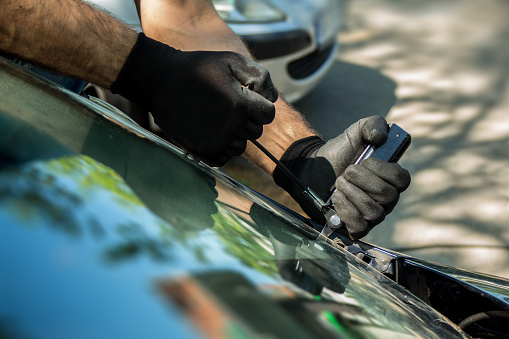How To Spot Problems In A Vehicle
Many people want to be able to repair their own cars, but think it's too hard to do. The truth is, it's not that hard to repair your car, you just need the right information to guide you. You can find tips and advice in this article that can help you with auto repair.
Don't pay money for air. Familiarize yourself with the correct air pressure of your car tires and invest in an air compressor. Check your tires on a regular basis and keep them properly inflated on your own. Being able to do this yourself on a regular basis will save you money in terms of wear and tear and regular maintenance.
Ask your friends and family for advice on a trust worthy auto body shop. It can be very hard to find a shop that will not rip you off or produce poor quality work. Asking for advice can save you from a lot of wasted money and time trying to do it on your own.
Understand the repair costs prior to leaving your car with any shop. Labor costs especially can run at different levels from shop to shop, especially if a specialist is involved. You'll want to know what you are getting into prior to learning about it the hard way days later.
Ask for OEM parts. These parts are the same original parts designed by the manufacturer. Generic parts can be cheaper but OEM parts will last longer and usually come with a better warranty. They may initially be a deal, but the generic parts may make you pay more in the long run.
Do not be afraid to ask a potential technician any questions you have. It is your vehicle that they will be working on and it is important that someone with the proper qualifications is handling it with care. In addition to asking about the problem with the vehicle, ask them any other questions you have about your car.
Make a DIY kit to store in the trunk to help you in times of need. You will want to have the tools necessary to change a tire, and they likely came with the vehicle. You will need to get a lug wrench and a jack if you don't already have them. You may ask want to get a variety of screwdrivers, ratchets, socket wrenches and the like. Avoid purchasing cheap tools. Instead, buy better quality, sturdy tools that will not break when you need them to repair something.
There are no standard warranties on repairs. Make sure you are aware of what your warranty covers and that you have it in writing. Warranties may have limitations such as deductibles, mileage, time, businesses authorized to do the warranty work or special steps needed to get reimbursement. Know your warranty rights.
Make sure that the auto repair shop you go to offers a warranty on their services. There are plenty of repair shops that will do a shoddy job, and there is nothing you can do about that if you have no warranty. A warranty will give you the opportunity to get the problem fixed for no charge.
Understand the billing process at the auto repair shop you go to. In many cases, you could get a bill for labor based on how long the manufacturer thinks it will take to repair your car. Be clear about how it works at whatever shop you take your car to.
Keep full copies of all of your auto repair work orders and every receipt as well. You'll want to have this proof available if any workmanship issues crop up. Plus, when you are selling the car, you'll tend to get more value for it when you are able to show exactly what has been repaired and how.
Whenever you are working on your car's electrical system, you should make certain the battery is disconnected. Failing to do so could cause you to receive an electrical shock. If you aren't certain whether or not the area you intend to work on has electrical components, play it save and disconnect your battery.
Keep your auto repair shops business card in your car at all times. You never know when something could go wrong with your vehicle. You'll want your favorite auto shop's phone number handy, though, when it does. Another option is to program all of their contact information in your phone.
Before you make an appointment to take your car to the mechanic, take a moment to look through your cars owner's manual. You may find that the problem you are experiencing is the result of failing to understand how your car's controls function rather than a malfunction requiring costly repairs.
All it takes to repair a car is knowledge. Every mechanic and amateur mechanic is able to repair a car and install new parts due to being knowledgeable about the workings of the car and the repair process. You have been given tips and advice in this article that make it possible to repair a car. Use them to your advantage and good luck!

